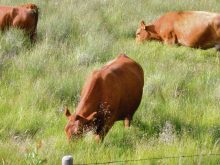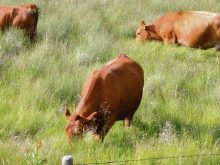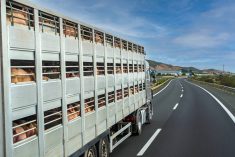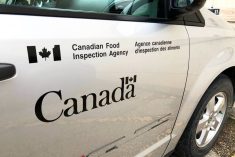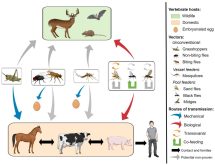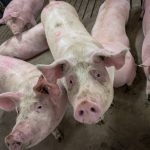The beef cow that became Canada’s 19th case of BSE is now confirmed as Canada’s first-ever case to be born after tighter limits were imposed on use of cattle parts in livestock feed.
Without specifying a home municipality, spokesmen for the Canadian Food Inspection Agency (CFIA) said on a conference call Wednesday that Case 19 was born in March 2009, on a farm somewhere in the Spruce Grove area northwest of Edmonton.
Its birth date makes Case 19 the first domestic case of bovine spongiform encephalopathy (BSE) to be born after Canada’s “enhanced feed ban” took effect in 2007.
Read Also
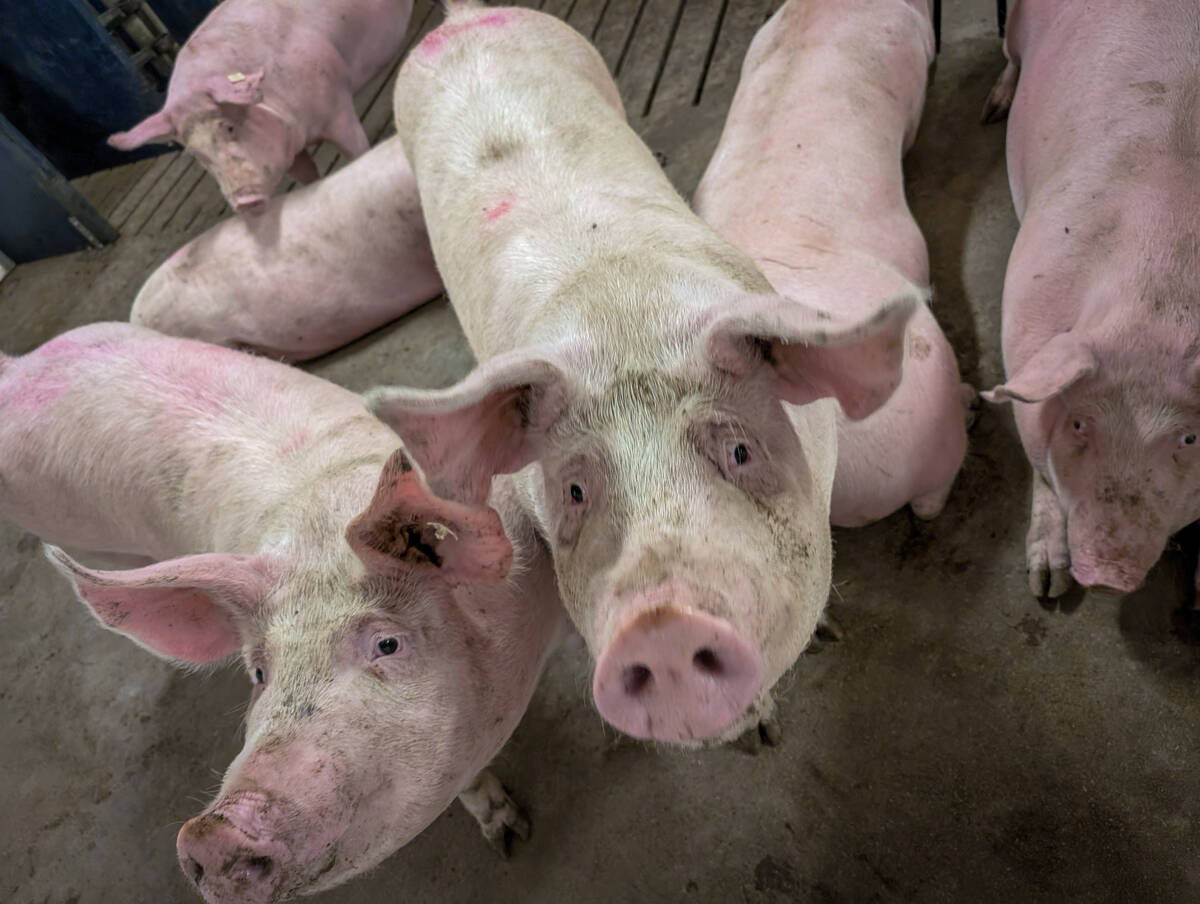
Porcine Epidemic Diarrhea found on a southern Alberta farm
Porcine Epidemic Diarrhea virus has been detected at a southern Alberta farm, Alberta Pork said Feb.23.
The 2007 ban prohibits the use of specified risk materials (SRMs, including nervous system tissues believed to harbour the BSE-causing agent) from rendered ruminants in any animal feeds, pet foods or fertilizers.
That ban tightened Canada’s 1997 prohibition on ruminant-to-ruminant feeding, which forbids the use of cattle parts and SRMs in cattle feed.
CFIA, which publicly announced Case 19 last Friday, learned the animal’s age and birth farm on Tuesday evening (Feb. 17). The index farm — where the animal died and had samples taken for testing — is in the same general area of Alberta as the birth farm, officials said.
Paul Mayers, CFIA’s vice-president for policy and programs, said Wednesday it’s not unheard of for countries that have had BSE in their domestic herds to see cases appear after comprehensive feed bans are imposed.
Several countries in the European Union reported cases of BSE in domestic cattle after their feed bans took effect, he said. Spain, for example, experienced such cases up to four years afterward, he added.
“We are not going to suggest that there was a zero risk achieved on Day 1 (after the enhanced ban took effect) in 2007,” he said.
That said, officials wouldn’t speculate as to whether Case 19 picked up BSE-infective material from old, pre-enhanced-ban feed.
Federal chief veterinary officer Dr. Harpreet Kochhar said Wednesday the cow’s feed, particularly in its first year of life, will be one of the primary aspects of CFIA’s investigation going forward.
The agency will also seek out any animals of “equivalent risk” to Case 19 in its traceback/traceout; such animals will be destroyed and tested for BSE, CFIA said.
Asked Wednesday if any such animals have yet been identified or destroyed, Mayers said the investigation isn’t yet at that stage.
It’s also not yet known how long Case 19 lived on its birth farm or where else it may have lived before arriving at the index farm. At its death, the cow had either lost or didn’t have a CCIA-grade ear tag, Mayers said, hence the delay in tracking down the birth date and birth farm.
“Non-edible byproducts”
CFIA said its investigation began Feb. 7, when Alberta officials reported a “non-negative” test for BSE. Case 19 was confirmed Feb. 11 through testing of samples in Lethbridge. Trading partners were informed last Thursday and the case was publicly confirmed Friday.
South Korea, as per its protocol with Canada to restore market access for Canadian beef in 2012, said Friday it would suspend Canadian beef imports pending further details on Case 19.
According to Agriculture and Agri-Food Canada, Indonesia announced Wednesday (Feb. 18) it will suspend imports of “non-edible byproducts” such as bone meal from Canadian cattle, also pending further details.
Case 19 doesn’t affect Canada’s status as a “controlled risk” country for BSE — which in turn shouldn’t affect Canadian beef exports to any country following World Organization for Animal Health (OIE) standards — but Mayers emphasized market access decisions “are for individual countries to make.”
Case 19, however, remains a setback for Canada’s efforts to level up from “controlled risk” to “negligible risk” for BSE. By OIE standards, a country’s youngest case of BSE must have been born 11 years before “negligible risk” status can be considered.
Canada, until last week, was on track to start that process in August this year, 11 years after Case 18’s birth. Case 19’s birthdate delays “negligible risk” status for Canada until 2020 at the earliest. — AGCanada.com Network





